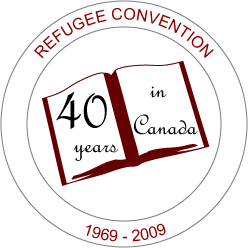
On 4 June 1969, Canada belatedly signed the Convention relating to the Status of Refugees, 18 years after it was adopted by the United Nations, and 15 years after it entered into force.
In the 40 years since Canada became a party to the Refugee Convention, it has gained the enviable reputation of being a world leader in protecting refugees.
In fact, there has been good and bad in Canadian responses to refugees, both before and after signing the Refugee Convention.
